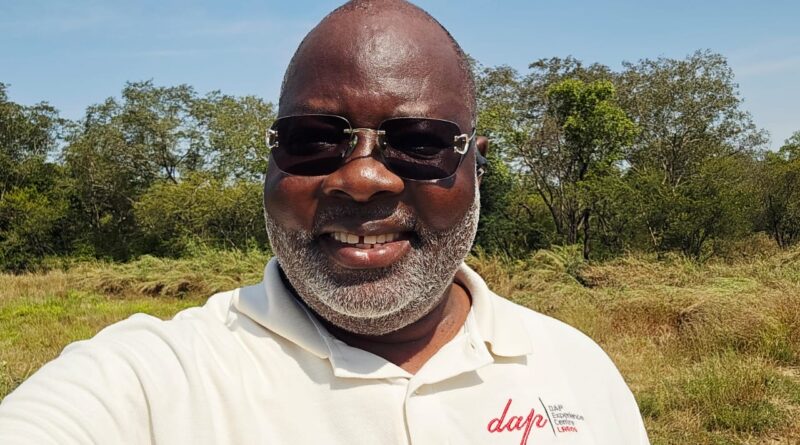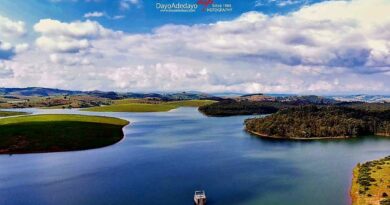Sumu: Where the Wild Still Whispers
By: ‘dayo Adedayo
Nigeria is beautiful! Too beautiful to be silent.
We have been blessed with landscapes that could rival the world’s finest, yet for too long our stories have gone untold. From the Federal to the Local Government, our collective gaze has often been fixed on the oil revenue from the Niger Delta and the VAT generated by Lagos, Rivers, Oyo, Bayelsa, and Kano. We have become so used to sharing these earnings that we neglected one of the most natural treasures God gave us, tourism, the world’s largest employer of labour and the truest mirror of a nation’s soul.
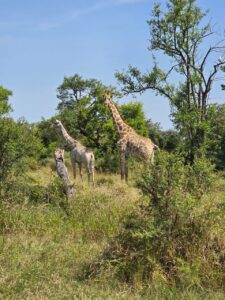
Travelling, to me, is like reading a book. To stay in one place is to read a single page and never turn to the rest. And so, when I heard of Sumu Wildlife Park in Bauchi State, I knew instinctively, ‘dayo, you must go there.
Early on a Saturday morning, the 11th of October 2025, I left Bauchi en route to Sumu. The sky, freshly washed by the night’s heavy rain, was an endless stretch of blue. The road shimmered under the sunlight, newly dualised for much of the journey by the administration of His Excellency, Senator Bala Abdulkadir Mohammed (CON), Governor of Bauchi State.
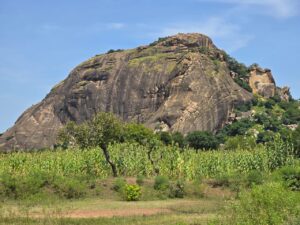
I turned to my driver, Baba Shehu, and asked, “Is the road like this all the way?”
He smiled and nodded, “Yes, Alhaji.”
For a while, I believed him.
But soon enough, the smoothness gave way to the old federal two-lane road, narrow, tired, and uneven. Still, the journey had its rhythm.
At Kafin Madaki, a village about 45 kilometres from Bauchi town, we made a left turn. From there, the terrain changed completely, bare land, slippery from last night’s rain, stretching endlessly toward the forest.
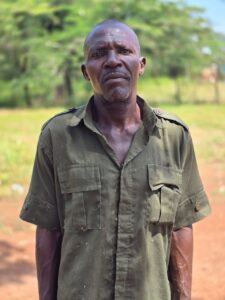
The villages we passed were alive with kindness. Men and women waved. Children smiled shyly. Every time we stopped to ask for direction, someone would point the way with cheerful patience. After nearly an hour, our tires sank into red mud, and just beyond it lay Sumu Wildlife Park, hidden like a secret in the heart of the forest.
The forest was calm and breathing. No noise, no traffic, just the rustle of leaves and the hum of life.
Soon a tall, dark, cheerful man appeared.
“I am Shuaib,” he said, the Park Ranger who would guide us through the wilderness.
He climbed into the front seat and we drove deeper into the forest, until suddenly, our vehicle sank into a muddy patch. For a moment, fear crept in, we were stuck in the middle of nowhere, surrounded by thick vegetation. But Shuaib’s ingenuity and Baba Shehu’s expert driving saved the day. With a burst of effort, the tires caught traction, and we were free again.
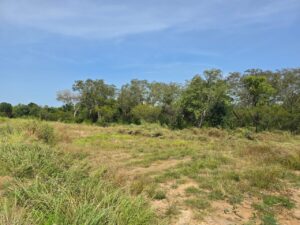
We drove until the forest thickened and the road ended. From there, we had to continue on foot. My shoes, unfit for the heavy mud, struggled with every step. I grew tired and frustrated. “Let’s turn back,” I said quietly.
But Shuaib smiled. “Patience,” he whispered. “Let me call the giraffes.”
He walked ahead, clapped softly, and whistled. Then, as if answering a sacred call, they began to appear, tall, graceful giraffes stepping out of the forest shadows, one after another. Their long necks swayed like trees caught in the rhythm of wind.
In that moment, every inconvenience dissolved. The mud, the heat, the uncertainty, all of it faded into the beauty of what stood before us. Sumu revealed itself as a miracle of nature, raw, untamed, and astonishingly alive.
Nestled in Ganjuwa Local Government Area, Sumu Wildlife Park is part of the Sumu Forest Reserve, north of Bauchi town. It was officially established in 2006, made possible through an extraordinary partnership with the Government of Namibia, which donated 279 animals, giraffes, zebras, elands, kudus, springboks, oryxes, and more to help create this living sanctuary.
Spread across over 2,000 hectares, Sumu is a fusion of savanna, woodland, and forests. A landscape of rolling grasslands and wild rock formations. The park is home to several species that roam freely within its protected boundaries. Rangers patrol the reserve daily, ensuring that man and nature coexist in quiet harmony.
Visitors to Sumu often speak of how the park feels untouched, almost primordial, an echo of Africa as it once was. It is not polished, not crowded, not fenced by vanity. It breathes. And in its breath, you feel something ancient and pure.
The Bauchi State Government, under its tourism revival plan, continues to invest in improving Sumu’s facilities and access roads, alongside the world-famous Yankari Game Reserve. The vision is clear: to make Bauchi the heartbeat of ecotourism in Nigeria, and Sumu its soul.
Bauchi is not merely a state; it is a revelation. The land wakes each morning in colours that no painter can capture, copper skies, emerald hills, and rivers that whisper stories of time.

Here lies Yankari Game Reserve, Africa’s hidden jewel, home to elephants, lions, and baboons, with its legendary Wikki Warm Springs, where the water remains warm all year round. There is also Paliyaram Hill, where shadows dance with clouds, and the tomb of Sir Abubakar Tafawa Balewa, Nigeria’s first Prime Minister, a quiet symbol of heritage and honour.
And then there is Sumu, wild and gentle at once. Its forests hum with life, its plains glow under golden sunlight, and its people welcome you as if they’ve known you forever.
Bauchi is a poem written by nature itself, every line, every valley, every forest a verse of beauty. It is the Pearl of Tourism in Nigeria, waiting to be rediscovered, re-imagined, and retold.
To travel is to turn the page of the book called life.
Sumu turned mine, and on that page, I found Nigeria again, raw, radiant, and full of wonder.

